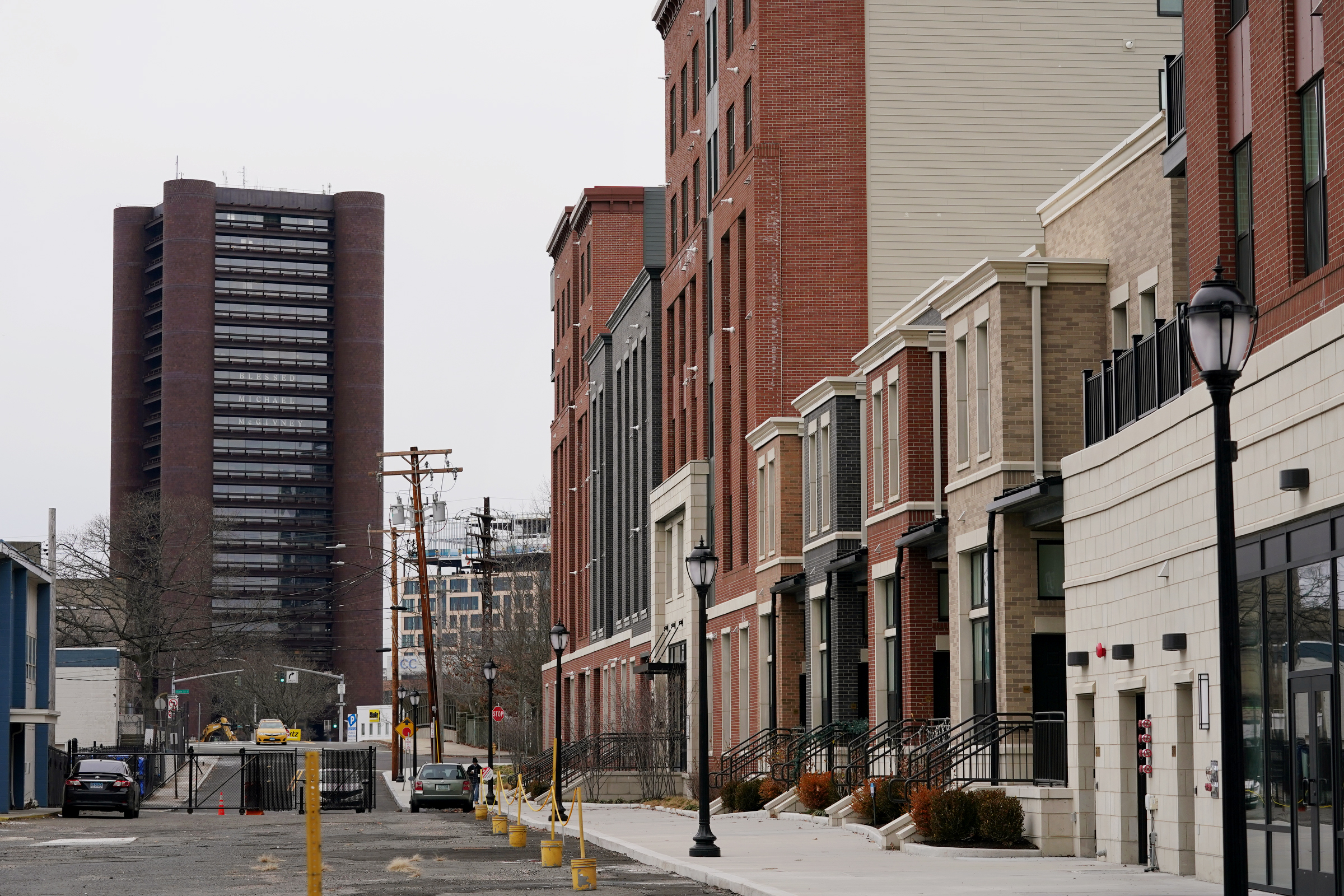CT Tenants Union looks to take housing ownership into its own hands
By establishing a community land trust, members of the tenants’ union can essentially become their own landlords and set rent at affordable levels.

Tim Tai
The Connecticut Tenants Union is well on its way to establishing a community land trust, which would allow it to control its own housing supply and set rents at affordable prices.
Community land trusts are nonprofit corporations typically established by groups that share ownership of property for the sake of creating sustainable models of housing that remain affordable for long periods of time, often spanning multiple generations.
In New Haven, where many apartment complexes are owned by megalandlords with thousands of units, Luke Melonakos-Harrion, the vice president of CTTU, expects CLTs to help diminish price gouging.
“This is the kind of intervention that, if operated at scale, would impact the overall cost of housing in New Haven by just making it a less fertile ground for speculative investors that basically treat the housing in this city as their own personal stock market that booms and busts and mostly just benefits them and not New Haven residents,” Melonakos-Harrison told the News.
Over the last year, CTTU has been working towards establishing its own community land trust and expects to file its articles of incorporation and bylaws within the next few months. However, Peter Fousek, the lead organizer of the union’s land trust efforts, expects that it will be much longer until a community land trust has properties under its ownership.
For Fousek, the CLT model provides an opportunity to establish housing that is affordable for people with low or moderate income. The other purpose, he said, would be to provide training and education around resident self-governance and sustainable collective ownership.
The main selling point is the opportunity to preserve affordability for long periods of time, often by granting 99-year leases — essentially home ownership — to members of the CLT who can pass that lease to future generations.
Julius Kimbrough, the executive director of Crescent City Community Land Trust in New Orleans, said that CLTs assisted members of the land trust find “permanent affordability” in a city facing a housing affordability crisis. An added benefit, he explained, is their ability to promote stability and community culture, while providing that community its own asset that will increase in value over time.
According to estimates by the International Center for Community Land Trusts, the United States currently has 310 community land trusts. For example, in 2020, the East Harlem El Barrio Community Land Trust purchased four deteriorating apartment buildings from New York City for one dollar each. Renovating the buildings’ 38 units into tenant-managed, permanently affordable housing cost approximately $13 million, funded through loans from a nonprofit affordable housing lender and the city’s Housing and Preservation Department.
Although establishing the CLT and its bylaws is fairly straightforward, Fousek expects the CTTU to face challenges acquiring properties.
“Given that this is a tenant union community land trust, the properties that we’re interested in acquiring are properties that our members already live in and that they’re already organized in,” Fousek explained. “Our organized chapter members are interested in buying with their neighbors to become their own landlords.”
But before they can do that, they will have to undergo “an uphill battle” to gather enough capital and acquire subsidized loan packages to make viable offers on the buildings that they live in. CTTU, for example, could acquire loans from the State Housing Finance Authority and Department of Housing or gather donations from local community foundations.
Although he sees community land trusts as a good strategy to secure housing affordability, Fousek is resolute that policymakers and landlords have their own responsibility to help resolve housing affordability crises — a responsibility that organized tenants unions can aim to enforce.
“If we can’t organize the collective working class power to actually hold power accountable, we’re never going to solve the crisis of housing and homelessness that we are facing today,” he said.
The first community land trust was established in 1969.
Interested in getting more news about New Haven? Join our newsletter!







